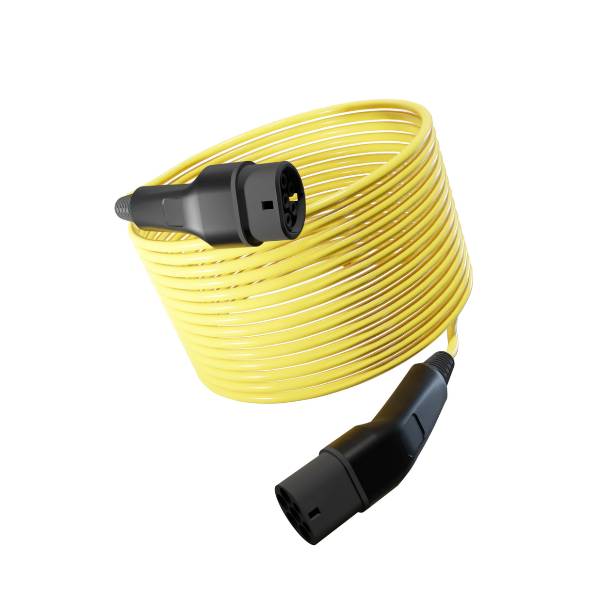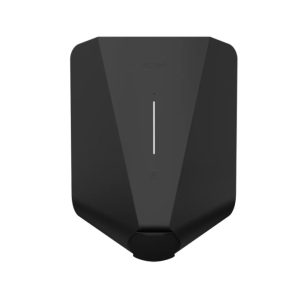The e-zoomed FAQ series: brief responses to pertinent questions related to driving an electric car! If you have a question, simply email us at shop@ezoomed.com!
Electric Cars: The Basics
For those of you new to zero-emission electric driving, we recommend a read of the following articles:
Sign up to the e-zoomed Electric Living newsletter
Buying Longer Length Electric Car Charging Cables: An Overview
Though a number of automotive manufacturers offer a ‘free’ EV cable with the purchase of an electric car, in reality, on most occasions these electric car charging cables are shorter lengths, usually between 2m and 5m. However, more often than not, electric car owners need a longer length EV cable for charging. In particular, for home EV charging, where the distance from the parked EV and the EV charging station is not always close.
For those EV owners with an untethered EV charging station i.e. an EV charger without a permanently attached EV cable, using a longer length EV cable is the best option for charging an EV that is parked at a distance from the EV charging station.
In general, for most residential charging, a 7.5m length EV cable is more than sufficient. However, some EV owners need up to 30m for to reach the EV from the charging station. EV cables between 10m and 50m are popular for home charging.
Even business customers, more often than not, require a longer length EV cable for charging. Again, just like residential EV charging, businesses with an untethered EV charger can use an EV cable of varying lengths. Again, EV cables between 10m and 50m have been used for business EV charging.
We at e-zoomed offer electric car charging cables up to 50m, single-phase (7.4 kW) and three-phase (11 kW/ 22 kW). These electric car charging cables are available in 16 Amp and 32 Amp. Though EV cables can be Type 1 and Type 2, the majority of recent electric vehicles (EVs) use a Type 2 EV charging cable.
Our custom-made long length EV cables are manufactured in the UK and have an IP54 rating, with a two year warranty, as standard. We are one of the leading suppliers of high quality and competitively priced EV cables in the UK. To buy an EV cable follow this link!
For those residential and business customers that do not have an EV charger on-site, an option to consider is a portable EV charger. Follow this link to buy one from e-zoomed.
| Longer Length EV Cables: FAQ | |
|---|---|
| What is the longest length EV cable you offer? | In general, we offer up to 50m, however, we can offer even longer length EV cables. To enquire further email us at shop@ezoomed.com. |
| Does the performance of the EV cable reduce as the length is increased? | In general, yes! However, in our experience, we have not witnessed a significant change in performance for EV cables up to 50m. For lengths longer than 50m, there can be a material drop in the performance of the EV cable. In general, a conductive cable poses a resistance to electric conductance. The larger the section of the cable, the less is the resistance. Another factor is the tension of the electric current. The higher the tension, the lower is the resistance. The resistance in the cable causes heat which is responsible for the loss in energy. It also results in a loss of voltage directly proportional to the amount of resistance. This resistance is a function of the cable length, as the resistance is measured in Ohm/meter. To reduce losses and heat dissipation using the same conductive material there are 2 options: increase the section of the cable/ increase the voltage of the current flowing. When applied to electric car charging cables, the longer the cable, the more pronounced the voltage drop. This should not cause an issue for EV cables up to 50m, unless there is a low voltage to start with. Also, the electric vehicle (EV) will monitor the tension at the chargeport and when the tension reduces under a preset value, the EV will reduce or refuse the charge. Normally this will not be an issue, unless the section of the cable used is not compatible with the intended use, and by heating the cable it will become even more resistive, further aggravating the issue. |
| What is the weight for longer length electric car charging cables? | It varies, depending on the length and phase of the EV cable. For 1-phase and 3-phase EV cables, between 20m to 50m, the weight can be vary from 7 kg and 22 Kg. |
| Where should I store my EV cable after the charging session has been completed? | In general, we discourage leaving an EV cable lying outside when not in use. Always best to carefully store the electric car charging cable in a cool and dry place. Best for the long-term maintenance of the EV cable. Also important to close the EV cable ‘plug cap’ after charging. This avoids any dirt or water from impacting the performance of the plugs/ connectors. Moreover, by storing the EV cable, the risk associated with tripping is also mitigated. |
| If I own a tethered EV charger, can I still use a standard longer length EV cable for charging? | No. For tethered EV chargers i.e. EV chargers in which the cable is permanently attached, a standard EV cable cannot be used. You will need to use an EV extension cable. For a quotation please email us at shop@ezoomed.com. |
| EV Cables Via e-zoomed: | |
|---|---|
| Cable Length: | 2m – 50m |
| Amperage: | 16 amp – 32 amp |
| Power Output: | 7.4 kW/ 11 KW/ 22 kW |
| Cable Type: | Type 1/ Type 2 |
| Phase: | Single-Phase/ Three-Phase |
| IP Rating: | IP54 |
| Warranty: | 2 Year |
While e-zoomed uses reasonable efforts to provide accurate and up-to-date information, some of the information provided is gathered from third parties and has not been independently verified by e-zoomed. While the information from the third party sources is believed to be reliable, no warranty, express or implied, is made by e-zoomed regarding the accuracy, adequacy, completeness, legality, reliability or usefulness of any information. This disclaimer applies to both isolated and aggregate uses of this information.





































